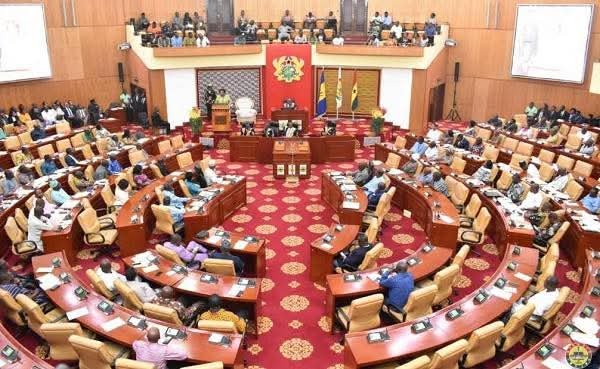News
The Minister for Fisheries and Aquaculture Development Addresses Parliament.

The Minister for Fisheries and Aquaculture Development, Emelia Arthur has disclosed that in 2021, Ghana was issued a yellow card by the European Union after being identified as a non-compliant third country in the fight against illegal fishing activities.
According to the Minister, the government, through the Ministry of Fisheries and Aquaculture Development, has engaged the European Union(EU) through the Ghana European Union dialogue, to address the concerns raised by the European Union(EU).
The engagement included the implementation of an action plan, periodic update report and validation exercises.
“We are happy to report that Ghana has made significant progress in resolving key concerns, primarily related to lapses in the regulatory framework, fisheries enforcement, and traceability,” she stated.
Also, she emphasized that a review of pending actions indicates that the enactment of the Fisheries and Aquaculture Development Bill, along with its accompanying regulations, remains critical to enhancing fisheries governance in Ghana.
She further informed the House that the Ministry has already submitted the Fisheries and Aquaculture Development Bill, 2025, to the House.
The bill was later referred to the Parliamentary Select Committee on Agriculture, Food, and Cocoa Affairs for consideration.
The Minister made this statement in response to a question posed by Member of Parliament for Atwima Mponua, Seth Osei-Akoto, regarding the immediate measures the ministry is implementing to sanitize Ghana’s fishing sector in the light of the European Union’s warning that Ghana could face a potential red card.
News
Man sentenced to 25 years for robbery at Manso Akwasiso

A 30-year-old man has been sentenced to 25 years imprisonment with hard labour by the Bekwai Circuit Court for his role in a 2022 robbery at a mining site at Manso Akwasiso in the Ashanti South Region.
The convict, Dominic Ofori, also known as Fanta, was arrested on 16th February 2026 after years on the run. He pleaded guilty before the Bekwai Circuit Court to robbery contrary to Section 149 of the Criminal Offences Act, 1960 Act 29, and was accordingly sentenced to 25 years imprisonment with hard labour.
On March 20, 2022, the Manso Adubia District Police received intelligence that a group of armed men from Manso Abodom were planning to attack a mining site at Manso Akwasiso to rob the owner of gold concentrate. Acting on the information, police mounted a coordinated operation and laid an ambush at the site.
At about 5:30 pm the same day, four-armed men arrived at the site, fired indiscriminately, and robbed the miners of their gold concentrate. The police team on surveillance intervened, resulting in an exchange of gunfire.
Three of the suspects, Abu Abubakar, Musah Latif, and Gideon Takyi, sustained gunshot wounds and were pronounced dead on arrival at St Martins Catholic Hospital at Agroyesum. Dominic Ofori escaped at the time but was later arrested and put before the court.
The Ashanti South Regional Police Command has assured the public of its continued commitment to combating violent crimes and bringing offenders to justice.
News
Ashanti police arrest man for publishing false news on TikTok

The Ashanti Regional Police Command has arrested 45-year-old Isaac Boafo, also known as “Duabo King,” for allegedly publishing false news intended to cause fear and panic.
Police said the arrest follows a viral TikTok video in which Boafo claimed that four officers at the Central Police Station in Kumasi engaged in inappropriate conduct with commercial sex workers during night patrols in Asafo.
Officers from the Police Intelligence Directorate (Ashanti Region) apprehended Boafo after receiving intelligence about the video.
During questioning, he admitted to creating the video to attract views and engagement online, and acknowledged that he could not prove the allegations.
Boafo also admitted making comments about the President of the Republic for content purposes and could not defend those statements.
He has been formally charged and is in detention as investigations continue.
The Ashanti Regional Police have warned the public against publishing or sharing false information on social media, noting that such acts can cause fear, panic, and damage reputations.
They said anyone found engaging in similar conduct will face legal action.
By: Jacob Aggrey














